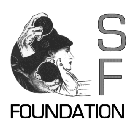Dominic Grace, The Science Fiction of Phyllis Gotlieb (McFarland, 2014, 240pp, £41.50)
Reviewed by Ardith Bravenec (University of Edinburgh)
The Science Fiction of Phyllis Gotlieb presents an indispensable study of a writer central to Canadian sf but largely overlooked by sf studies. Grace delves deeply into Gotlieb’s legacy, tracking her career and providing a detailed overview of her sf oeuvre. The book is arranged in ‘roughly chronological’ order and pays attention not only to Gotlieb’s sf but also its importance to her parallel career as a poet. The order allows for a natural exploration of Gotlieb’s development as a writer and the progression of characteristic themes, such as the galactic empire, the creation of artificial intelligence, genetic manipulation, and the relationship between humans, aliens, machines and animals, as well as her literary approach to the genre.
In the introduction, Grace considers the many reasons why Gotlieb has not enjoyed greater popularity, has been only occasionally anthologized and has been largely overlooked, both in the field of sf studies and by genre readers. There is the complicating factor of being a Canadian author while the majority of her sf was first published in the US. As highlighted by quotes from Gotlieb’s past interviews, Grace notes that a ‘profound concern with the natures of identity and of literary genre’ pervades her work. Grace acknowledges that ‘Gotlieb’s concerns are not overtly feminist’, which may partially account for her lack of inclusion in many feminist studies of sf. She is also disregarded in more general studies of women in sf; during the 1960s and 1970s ‘Gotlieb was largely invisible during the years when women made significant inroads into the genre and began to receive serious commercial success and critical attention’.
Although the density and complexity of her work might have presented a barrier to regular sf readers, Grace remarks that Gotlieb’s melding of the ‘high’ culture elements of poetry and the ‘low’ culture elements of sf provide a basis of her importance, in addition to her national identity, gender and religious roots. Such experiences are key to her mainstream novel Why Should I have All the Grief? (1969) and resonate in ‘Tauf Aleph’ (1981), ‘one of her best, and best-known, stories’. Issues of procreation, both natural to the technologically artificial, are identified as central to Gotlieb’s canon. Many of her short stories and all of her sf novels, with the exception of Sunburst (1964), occupy the distant future, space opera environment of the Galactic Federation or ‘GalFed’. While Gotlieb’s sf is ‘in some ways squarely located within the conventions of the genre’, it is ‘unique or unconventional in several important ways, rooted in her experience as a woman, a Jew, and a Canadian, as well as in the ways she straddles generic and national lines as a Canadian literary writer and an American genre writer’.
Chapter one examines Gotlieb’s early short stories published between 1959 and 1969, introducing ‘in concentrated and distilled form, many of Gotlieb’s characteristic themes and stylistic practices’. The first publication, ‘A Grain of Manhood’ (1959), is afforded especially careful analysis. The discussion then leads to concise considerations of the eight other stories. Gotlieb’s first sf novel is introduced in chapter two. Grace writes that Sunburst remains Gotlieb’s ‘best-known and arguably her most highly regarded novel’.
Chapter three introduces the publishing history and contents of the novels, O Master Caliban! (1976) and Heart of Red Iron (1989), which comprise the Dahlgren Diptych. While each novel is presented under its own section, the chronological investigation is sometimes relaxed in order to alert readers to resonances with other works, such as ‘Tauf Aleph’. the Lyhhrt trilogy and the Ungrukh Chronicles. The fourth chapter focuses on Gotlieb’s mid-period short fiction published between 1970 and 1982, beginning with the challenging ‘Sunday’s Child’ (1977). While some stories receive significant attention, others such as ‘The Newest Profession’ (1982) only receive a mere paragraph. On the other hand, Grace deftly comments on questions of machine intelligence in such stories as ‘SCORE/SCORE’ (1970), ‘The Military Hospital’ (1970) and ‘Tauf Aleph’.
Chapters five and six focus on the books of the Ungrukh Chronicles, consisting of A Judgment of Dragons (1980), Emperor, Sword, Pentacles (1982) and The Kingdom of the Cats (1985), and the Lyhhrt Trilogy, consisting of Flesh and Gold (1998), Violent Stars (1999) and Mindworlds (2002). Chapter seven examines Gotlieb’s poetry in terms of both its thematic elements and form as well as the relation to her fiction. The eighth chapter focuses on Gotlieb’s final fictions, including short stories published between 1986 and 1998, and her final novel Birthstones (2007). Throughout these later chapters, Grace provides a nuanced discussion of the emergence and refinement of reoccurring themes, connecting the similarities of her novels to her stories and poetry.
In the conclusion Grace completes his consideration of the prevalent concerns across Gotlieb’s work, in particular, pregnancy and birth, colonization, biological essentialism and the mind-body relationship. He remarks on her first and final sf publications and how she ‘thematizes reproduction’ and ‘returns almost obsessively to the womb,’ writing that ‘her career opened as it closed’. Grace notes that ‘the extent of her achievements becomes clear only when one looks across her career rather than simply at her best-known and most accessible work’. To that end, Grace has provided a fundamental overview to Gotlieb’s themes and their recurring variations. The Science Fiction of Phyllis Gotlieb provides experienced readers with a new perspective, viewed from across the span of Gotlieb’s oeuvre, and offers a critical foundation for new readers.



